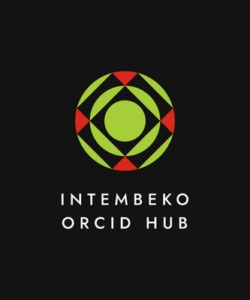Millions of academic papers are published annually as regular publication is an integral part of the academic career. But, for academic career advancement, and the reputation of universities, just publishing is not enough. Those papers need to be cited, which means they need to be read and used by other researchers in the field. The challenge, says Veliswa Tshetsha, senior coordinator for open scholarship at the University of Pretoria (UP) is to make the work of UP’s researchers visible through this scientific information overload. At the core of their visibility strategy lies ORCID, the open researcher and contributor ID to help researchers connect their contributions across platforms, disciplines and borders.
The Intembeko ORCID Hub, launched by TENET in 2021, has proved a valuable tool for UP in its effort to support the institutional research visibilityand impact project. This includes the implementation of the UP Research(er) Check Tool, the Altmetric Explorer and dataset mining using the Dimensions platform.
“In 2021 we embarked on a pilot project, run with the Faculties of Humanities and Health Sciences, to expand the visibility and impact of our researchers,” says Tshetsha. “One thing that became clear during this pilot is that many of our researchers don’t have ORCID iDs, or their ORCID iDs are not properly populated.”
Using Intembeko to reap full benefits of ORCID
The ORCID iD is a free, unique and persistent identifier, which stays the same irrespective of name or institution changes, and links to a public profile where a researcher’s record, including affiliations, research outputs, social media and more, can be accessed. ORCID integrates across a wide range of research and academic institutions, including publishers and funders, which means if an ORCID iD is properly connected, many of the updates are automatic. But some effort by the researcher to manage their own ORCID record is still required.
This, says Tshetsha, was the big challenge for the institution. Considering researchers’ lack of time, how could they help them to keep their ORCID records populated and up-to-date.
Fortunately it was in that very same year that TENET released its Intembeko ORCID Hub, built to help the members of the South African ORCID Consortium (of which TENET is the lead organisation) reap the full benefits of ORCID. The hub offers consortium members a platform through which they can use a set of ORCID member application programming interface (API) credentials to interact with the ORCID registry irrespective of their organisation’s technical capabilities. Intembeko means “trust” in isiXhosa and symbolises the intention of the hub to act as a trusted source of information for ORCID records.
“For us, at UP, the Intembeko Hub actually came as magic, it was exactly the solution we needed. And for TENET, they were very happy that we were going to test the hub to see if it would benefit us.”
“While individual universities can build their own integrations with ORCID, as the consortium lead, TENET recognises that this requires time, skills, and resources that might not be immediately available. The Intembeko hub provides a bridge, allowing institutions to adopt ORCID in their processes much earlier than might otherwise be possible. Easing integrations is a key part of the value a national consortium can offer its members,” says Wesley Barry, ORCID support specialist at TENET.
When researchers connect their ORCID through Intembeko, UP becomes a trusted organisation thus allowing UP staff who have admin access in Intembeko to populate those researcher’s records on their behalf.
“Recently I assisted a researcher from Health Sciences with the Intembeko Hub,” says Tshetsha. “When she saw how quickly her ORCID record was populated she asked me, how did this happen?”
Tshetsha says the hub has made a very tedious process much easier and smoother.
“Wesley from TENET has been so helpful and responsive. He prepared a number of templates that made it easy for us to do what we needed to do. Now we take a template, populate it with the researcher information, and then push that file through the hub. The researcher can then see the option for confirmation within the hub. You can also see through the hub if your files have gone through, and if not it tells you why.”
“The Intembeko ORCID hub benefits both the researcher and the institution equally.” says Barry.
“For the researcher the hub removes the burden of manually keeping your record up to date. For the institution, adding trusted information into researchers ORCID records through the hub guarantees that the researcher’s affiliation is correct and true. Institutional admins can download a list of connected ORCID records which can be used for university research reporting purposes.”
ORCID for research visibility
Tshetsha says many researchers were also excited to learn that it is easy to pull through reports from Altmetric explorer into their ORCID profiles.
“When I speak to researchers about their visibility and impact I tell them ORCID is a one-stop shop profile tool. It has no restrictions, you can add all your websites, all your funders, the places you have worked, the areas you have excelled, your biography, your research keywords.”
Greater visibility is good for individual researchers, resulting in greater impact and local and international attention which can lead to more funding and international collaboration. But, says Tshetsha, it is also important for the university to increase its visibility, and key to that is to make sure the excellent work its researchers are doing gets noticed.
“Our work with ORCID is part of a larger project to develop a researcher visibility checker tool which we can use to help our researchers reach maximum visibility and impact. But we also realise we need to try and free up time for our researchers to focus on their research. The Intembeko Hub is an excellent tool to help us serve our research community as well as furthering the interests of the institution.”
